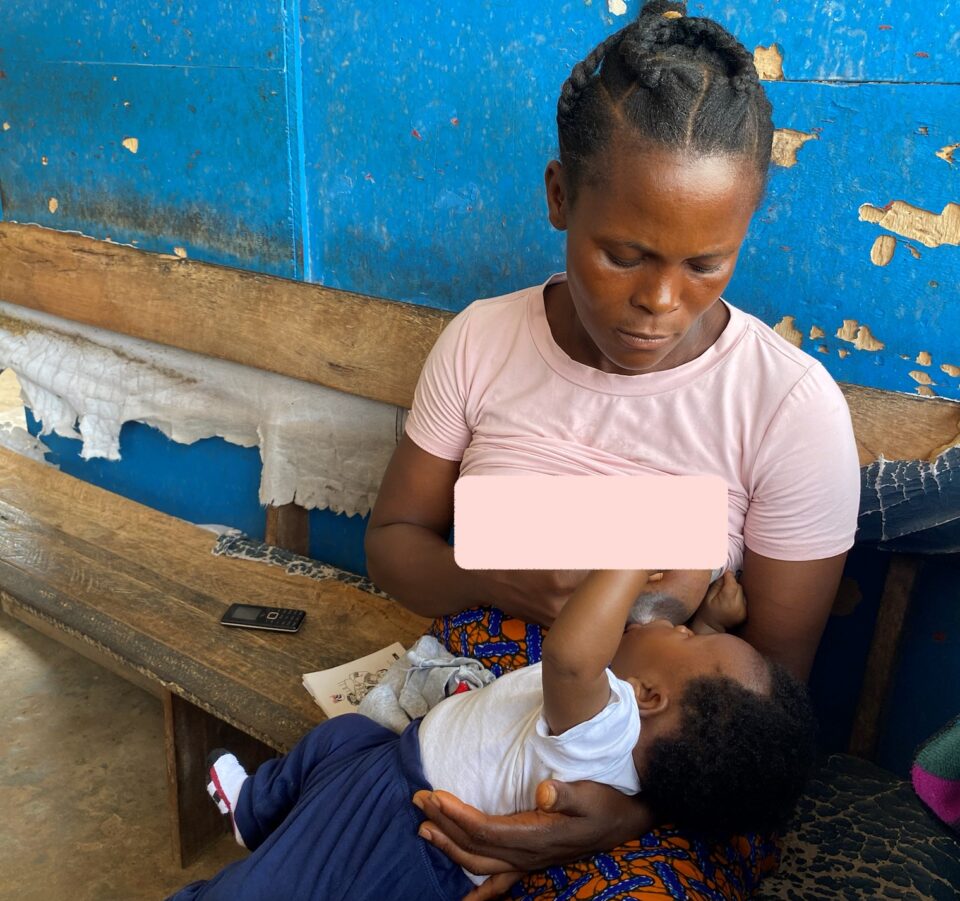PHOTO: Miatta Yari, 37, breastfeeds her 6-month-old baby at the Zannah Town Clinic. (Aaron Salloe)
By Aaron Salloe
ZANNAH TOWN, Montserrado County— At the Zannah Town Clinic in Todee District, Montserrado County, Liberia, Miatta Yari, a mother of 4, is taking a brief break to breastfeed her 6-month-old child, Teddy. Yari is excited about the availability of clean water at the clinic, which was made possible by the water station installed in 2020 through funding from WaterAid Liberia.
The system is powered by a solar panel and features a borehole that feeds an overhead reservoir, which connects to main rooms in the clinic through a network of pipes. This innovative method of water supply is unprecedented for the town and Yari is grateful for the ease and health protection it provides. She brings all her children, including Teddy, for regular medical checkups to the clinic, which is about a 15-minute walk from their home.
“It’s fine,” says Yari. “The water help[s] midwive[s], [and us] baby [mothers]. I want them to continue helping us, we the people that live in the bush [rural areas].”
Before the establishment of the facilities, the residents and those from surrounding villages and towns had to walk for 30 minutes to fetch water from the only creek in Zannah Town. This often left them feeling tired and frustrated, causing some of them to choose other clinics that had no such hardships. However, when WaterAid introduced the water sanitation and hygiene (WASH) system, it’s been particularly helpful for pregnant women, helping to protect them and their babies from infection during and after childbirth.
“I want to tell them thank you for bringing water in Zannah Town,” Yari says of WaterAid. I want them not to stop healing us, the poor people.”
Since the implementation of the WASH system, the health facility has seen a significant increase in patient enrollment, which is a positive development. The Officer-In-Charge, Mavaii Gormuyor, who is also a midwife and a registered nurse, has reported that the weekly patients’ enrollment has increased from 60 to 100. Nearly 70% of the patients are pregnant women and new mothers who have given birth at the clinic, according to Gormuyor.
“Nearly every day we do a delivery,” says Gormuyor. “Sometimes two to three a day.”
Gormuyor says it’s an indication that the health facility is providing quality care for mothers and their infants. Gormuyor says more patients are coming to the clinic because news of the WASH facilities has spread rapidly among the town’s people. She adds the numbers include patients who are not residents of the town, as well as those who initially complained of fetching water from the town’s creek or handpump for their sick family members or loved ones.
The numbers of people using WASH services in rural areas are highlighted in the WASH in Health Care Facilities roadmap by the National Public Health Institute of Liberia (NPHIL), launched this month. The roadmap states that “rural facilities are more committed (61%) to practising Infection Prevention and Control and hand hygiene compared to their urban counterparts (50%).”
Amos Gborie, Director of the Division of Environmental and Occupational Health at NPHIL believes WaterAid support is crucial for Liberia’s WASH program and hopes it continues.
“WaterAid is in full compliance with National WASH standards as they consult NPHIL and other national WASH actors before commencing work,” says Gborie. “They also involve local county health team staff and national staff in monitoring project activities.”
The importance WASH services in health facilities is further highlighted in a new report by H6, comprising the World Health Organization and Unicef among others. The report says alarmingly, “1,100 women and 8,510 newborn die annually during childbirth in Liberia,” a number experts say can be reduced by the WASH system that WaterAid funds.
At the Zannah Town Clinic, Gormuyor says they have ensured that patients and visitors to the clinic always use the WASH services. She and her staff find comfort in the WASH system.
“It makes the work easier because we have access to water,” Gormuyor adds. “It makes me feel happy because, through God, I am trying to save lives. It was difficult [when we didn’t have the WASH services]. Water is important to this facility. We cannot do without water after a [ delivery] procedure.”
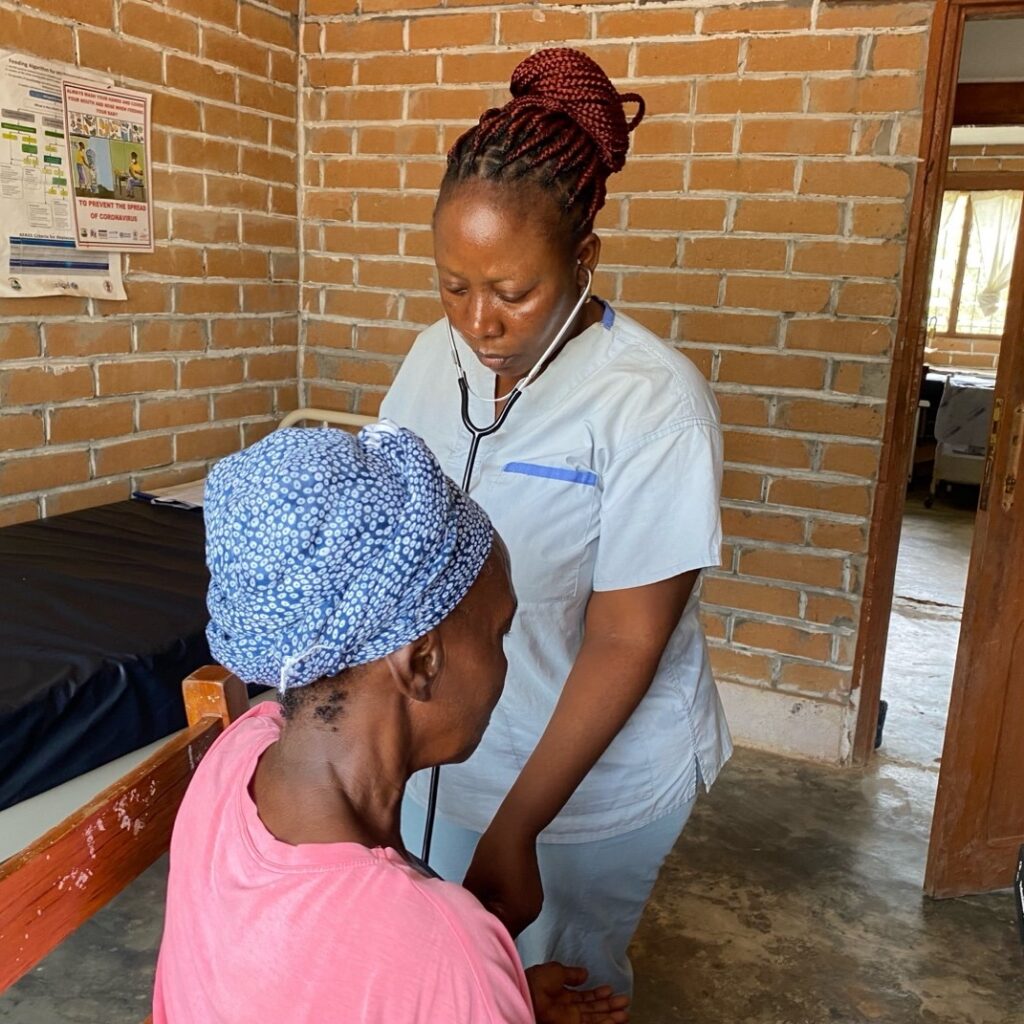
Mavaii Gormuyor uses a stethoscope on a patient at the clinic. (Aaron Salloe)
Kamah Flomo, a 27-year-old woman, who is eight months pregnant, stresses the importance of WaterAid’s intervention at the clinic and in her town. During a routine medical checkup for herself and her unborn child, she expresses happiness at drinking clear water from the taps of the solar-energy-powered water station and washing her hands with soap and water at the handwashing point.
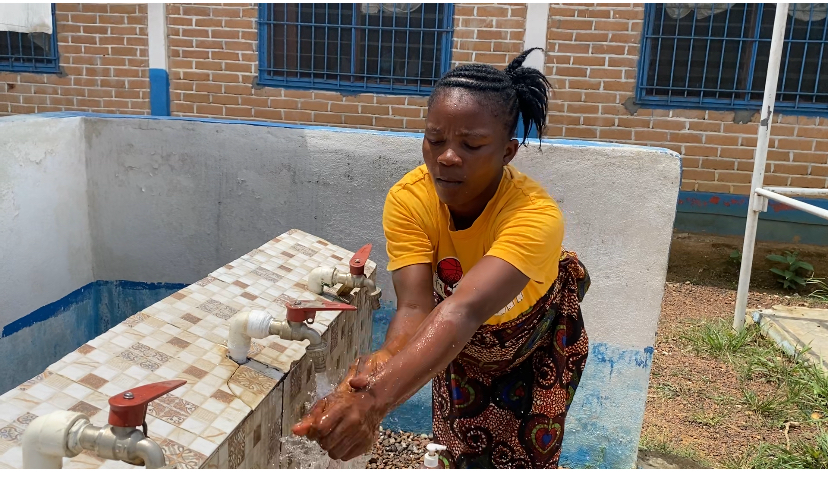
Kamah Flomo washes her hands with soap and water at a WASH station built by WaterAid.
Although great progress has been made through WaterAid’s interventions, there’s still work to do. The Chief of Kop Clan, of which Zannah Town is part, has one wish for WaterAid: “They did
Although great progress has been made through WaterAid’s interventions, there’s still work to do. The Chief of Kop Clan, of which Zannah Town is part, has one wish for WaterAid: “They did
well for us. But I still want them to do more,” says Richard S. Nehne, 52, who has lived all his life in the town of about 1,800 inhabitants. “My appeal to them: I want them to provide more water. [There are 87] villages and towns [in this clan without.”
WaterAid has constructed and rehabilitated five WASH stations in Todee. Mr. Chuchu Selma, WaterAid Country Director, says they’ve heard the appeal of the residents and would work with the communities, local and national government, and partners to address the issues appropriately. Selma says Todee remains strategically important for the WaterAid WASH program.
“By 2028, our ambition for Liberia is to see 700,000 more people with sustainable,
safe and inclusive WASH, starting with comprehensive services in Todee District,” says Selma.
“This will also mean that hygiene, sanitation, and water use behaviors are sustainably and consistently practised in the district. WaterAid will strengthen WASH systems in Todee District, document the lessons and make sure to influence the Government of Liberia to adapt the model as a national approach in all major strategies for programming.”
Meanwhile, on May 4, 2024, WaterAid turned a mechanized water supply system at the Fahnjah clinic and rehabilitated another in Jenewonde. These facilities in Tewor district, Grand Cape Mount County, will now serve about 5,000 catchment residents and feature 24/7 water supply to hand-washing basins, sinks and bathrooms in multiple wards. The government of Liberia has determined that the facilities meet the required standards and that the water is safe.
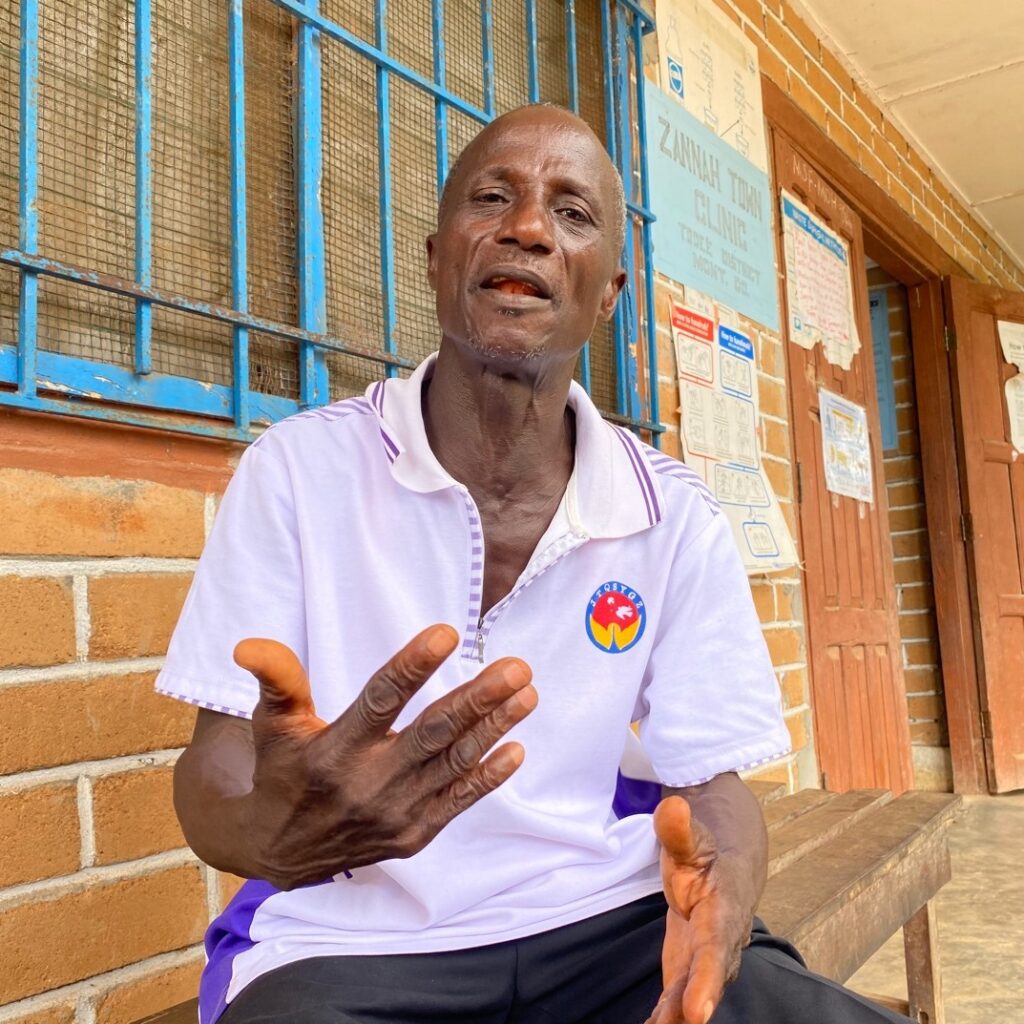
Richard S. Nehne, 52, is the Chief of Kop Clan, Todee District.
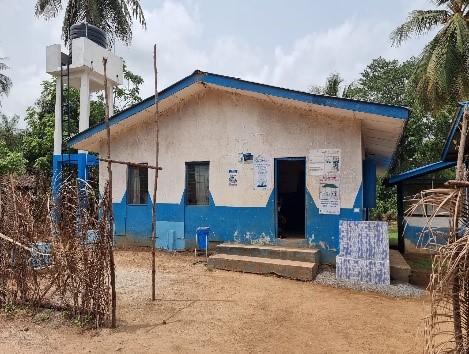
(R-L): Water tower facilities provided by WaterAid on May 4, 2024 for Fahnjah & Jenewonde Clinics, Tewor District, Grand Cape Mount.
“We shall work with the government and other partners to replicate these models and make sure the last person is Liberia is reached with access to clean water, sanitation and hygiene services,” said Chuchu Selma, WaterAid Country Director.
He said WaterAid has successfully restored and upgraded 33 wells in various communities and educational institutions in Cape Mount. They have also renovated and modernized toilets in 12 schools while constructing a brand-new one. Furthermore, the institution has conducted in-depth trainings on Hygiene Behaviour Change (HBC), in 13 schools and 15 communities.
Similarly, in Montserrado, WaterAid recently constructed six solar-powered water systems and constructed and rehabilitated 78 wells, 12 toilet facilities, and provided HBC in 17 schools and 64 communities in to improve the WASH sector.

